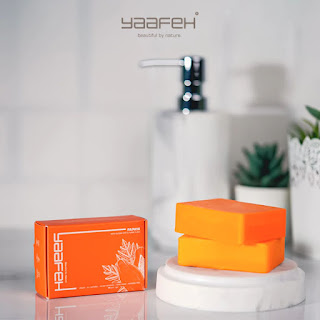Everything you need to know about Organic Soap
In a world where sustainability and natural living have taken center stage, the demand for organic products has grown exponentially. Organic soap, in particular, has gained immense popularity for its gentle yet effective cleansing properties and its commitment to environmental and personal well-being.
What is Organic Soap?
Organic soap is a type of soap made from natural and organic ingredients, free from synthetic chemicals, artificial fragrances, and harsh additives. These soaps are crafted with the utmost care and consideration for both the human body and the environment. They are an embodiment of the principles of eco-friendliness, cruelty-free production, and a holistic approach to personal hygiene.
Benefits of Using Organic Soap:
Gentle on Your Skin:
One of the primary reasons people choose organic soap is its mild and non-irritating nature. Conventional soaps often contain sulfates, parabens, and artificial fragrances, which can be harsh on the skin, causing dryness, itching, and allergies. Organic soaps, on the other hand, are formulated with ingredients like coconut oil, shea butter, and essential oils, which nourish and protect the skin, leaving it soft and healthy.
Environmentally Friendly:
Organic soap manufacturers prioritize sustainable and eco-friendly practices. The ingredients used are cultivated without the use of synthetic pesticides or fertilizers. The absence of harmful chemicals in the soap not only benefits your skin but also reduces the environmental impact of soap production. Furthermore, many organic soap brands utilize biodegradable packaging, minimizing plastic waste.
No Harmful Additives:
Conventional soaps often contain artificial colorants, fragrances, and preservatives, which can cause adverse reactions in sensitive individuals. Organic soaps are free from such additives, ensuring that you're not exposing your skin to potentially harmful substances. This purity makes them an ideal choice for those with skin conditions like eczema or allergies.
Cruelty-Free:
Many organic soap brands adhere to cruelty-free practices, meaning their products are not tested on animals. This ethical approach to soap production aligns with the growing demand for products that respect animal welfare.
Varied Selection:
Organic soap comes in a wide array of options, from unscented bars for sensitive skin to fragrant blends that cater to individual preferences. You can find organic soaps with different natural ingredients, such as lavender, tea tree oil, aloe vera, and more, each offering unique benefits for your skin.
Handmade Craftsmanship:
A significant portion of organic soaps is handmade by skilled artisans. This traditional approach to soap-making allows for meticulous attention to detail, resulting in small-batch, high-quality products. It also supports local and independent businesses.
Choosing the Right Organic Soap:
When selecting an organic soap, consider your specific skin type and any particular skin concerns you may have. For better result after using organic you can use anti pigment serum for natural glow. Look for products that align with your values, such as sustainability and cruelty-free practices. Additionally, it's essential to read ingredient lists to ensure that the soap meets your expectations for purity and quality.
In conclusion, organic soap is a sustainable and luxurious choice for those looking to care for their skin while being mindful of the planet. By opting for organic soap, you can enjoy the benefits of gentle cleansing, support eco-friendly practices, and contribute to a more ethical and environmentally conscious personal care routine. Make the switch to organic soap today and experience the difference in both your skin's health and your commitment to a greener, more responsible lifestyle.



Comments
Post a Comment